
下载亿题库APP
联系电话:400-660-1360

下载亿题库APP
联系电话:400-660-1360

请谨慎保管和记忆你的密码,以免泄露和丢失

请谨慎保管和记忆你的密码,以免泄露和丢失

为了帮助广大考生顺利通过口译笔译考试,帮考网为大家分享了一些高级口译试题相关内容,希望大家每天坚持练习,积极备考。
A better balance: More feast, less famine .
WORK TODAY IS about far more than economics. More even than when Theodore Roosevelt extolled its virtues, people over the world over want work not just to put food on the table and money in the bank, but as a means of gaining personal satisfaction. The changes now under way stand to make the world as a whole significantly better off and allow many more people to win the prize of being able to work hard at something worth doing. Yet, as this report has explained, there are many people who are not winning the prize and for whom the outlook is grim, even in rich countries where getting a decent job had been taken for granted.
Globalisation and other pro-market reforms were sold as a package deal. Opening up a country’s markets, the argument went, would increase overall wealth in every country, and policies for internal redistribution would help the inevitable losers—or else their personal misery could have serious social consequences for everyone else. That is why jobs are rightly at the top of the political agenda the world over.
Where unemployment is currently higher than usual, there is enormous pressure on politicians to spend money they have not got on quick fixes that almost certainly would not work. But almost everywhere, what is needed from government are the sort of fundamental reforms that can make a big difference in the long run, beyond the next electoral cycle.
The mismatch between the skills demanded by employers and those available in the market is a reflection both of bad choices by students, who have not thought hard enough about what will help them find a good job, and of education systems that are too often indifferent to the needs of the labour market and too slow to change even if they try. It is not just Egypt where the universities provide training for public-sector jobs that are no longer abundant yet fail to equip students with what they need to thrive in a market economy. Out of necessity, India is emerging as a model for tackling these problems, both because its companies have become expert in turning useless graduates into useful ones and because it has allowed industry to take the lead in creating a huge new programme to tackle skills shortages.
A second challenge is for governments to create the right conditions for businesses to create more jobs. That means running sustainable macroeconomic policies, so that firms need not fear that their investments will be undermined by another economic crisis; sensible regulation; and a tax system that is both competitive, with low marginal rates, and does not distort business decisions in arbitrary ways. Given the importance of job creation, it would make sense to shift some of the burden of taxation permanently away from employment towards consumption or carbon emissions. And since entrepreneurship plays a big part in creating jobs, especially in the phase when young businesses expand rapidly, government should do all it can to encourage more of it—though in view of its poor track record in this area, that should be mainly a matter of supporting (rather than obstructing) private-sector-led initiatives.
The goal of creating flexible labour markets should not be abandoned, but in future the ways in which inflexible labour markets are loosened up should be given more thought. The countries with the biggest youth-unemployment problems tend to be those where either there is no flexibility (as in much of the Middle East) or where flexibility applies only to newcomers to the jobs market, whereas older incumbents have continued to enjoy the protection that made the labour market inflexible in the first place (as in Spain). The political attractions of leaving the incumbents’ privileges untouched are obvious, but so, by now, are the social consequences of making the young bear most of the costs of flexibility.
Long-term unemployment often turns into permanent unemployment, so governments should aim to keep people in work, even if that sometimes means continuing to pay them benefits as they work. Health care and pension systems should be (re-)designed to allow workers as much flexibility as possible, not least in deciding when to retire. In the rich world these welfare systems were built on the assumption that men with lifetime nine-to-five jobs were the main breadwinners. In emerging markets that are introducing social protection for those unable to earn a living, the systems should be designed in ways that do not discourage work.
There is no excuse for delay in starting to put in place these long-term solutions. Jeff Immelt of GE may well be right to think that in America “ultimately we will get it sorted,” but he is also right that political dysfunction in Washington, DC, has “an opportunity cost. It is not like the rest of the world has stopped while we are going through this.” The same is true in many other countries where reform. has stalled or is not even on the agenda yet.
And while individuals wait for their governments to get their acts together, there is plenty that they can do to give themselves the best chance of surviving and thriving in the new world of work. They need to clean up their image on the internet, get in touch with their entrepreneurial DNA and brush up on their serial mastery. And form. their very own posse.
评析:本篇阅读理解文章取自The Economist 2011年9月10日那期,当期的封面主题是THE QUEST FOR JOBS。无独有偶,在本期的special report里再次提到了有关工作的话题。很显然,从标题a better balance可以看出作者对Jobs的现状是担忧的,希望能够在未来有一个better balance。
通过文章标题,大家可能有点迷惑,但是看了第一段以后,就了解,这里所谓的“盛宴”和“饥荒”其实是比喻用法,用在劳动力市场上,意思是指要创造更多的工作岗位,而不是让大家没有工作,达到劳动力市场上的供需平衡。
在文章的一开始就提出现在人们工作的目的不再只是为了获得餐桌上的食物,而更希望能够得到一种自我满足。接下来分别讲到了工作问题是世界政治首要问题的原 因,然后指出现存的两大难题:雇主所需技能与市场上应聘者所拥有技能的不匹配,以及政府需要为企业创造良好的环境来创造更多的工作岗位。接着又讲到创造灵 活的劳动力市场以及立即采取应对失业问题的长期措施的重要性,最后指出除了政府,个人应该做出的努力。
这篇文章比较长,看下去需要耐心。但是通篇没有什么生僻词,所以难度适中,只要考生注意根据问题,到文中去抓取要点,那么这篇阅读理解想要得高分也不是很困难。
看到这里小伙伴们是否有所收获呢?希望帮考网为大家分享的内容能给大家带来帮助,后续也可以多关注帮考网,这里有更多的考试资讯,你想知道的都在这!
 27
27三级笔译和口译考试每年可以考几次?:三级笔译和口译考试每年可以考几次?通常情况下笔译口译考试都是每年两次。上半年一般在1月份报名,5月份考试,下半年一般在7月份报名,11月考试,各省市情况不一,具体情况可上CATTI官网或各省市人事考试网查询。
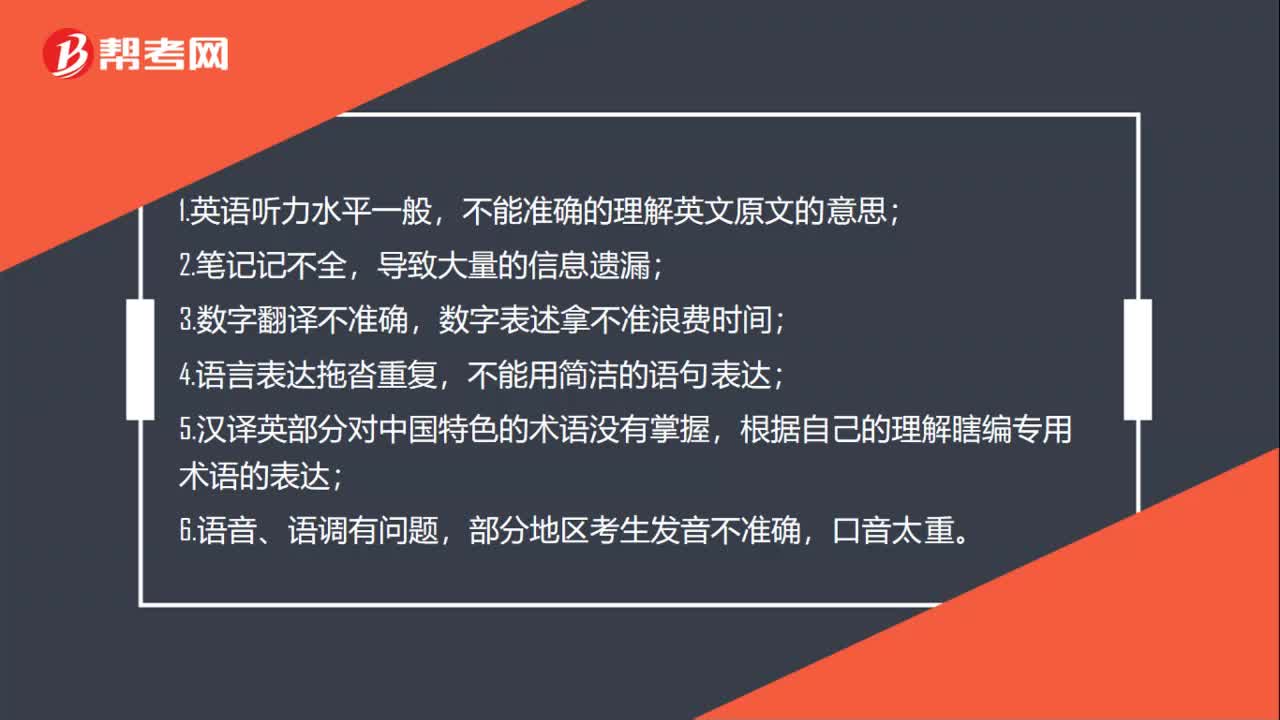 43
43口译考试应注意哪些问题?:口译考试应注意哪些问题?1.英语听力水平一般,不能准确的理解英文原文的意思;2.笔记记不全,导致大量的信息遗漏;3.数字翻译不准确,数字表述拿不准浪费时间;4.语言表达拖沓重复,不能用简洁的语句表达;5.汉译英部分对中国特色的术语没有掌握,根据自己的理解瞎编专用术语的表达;6.语音、语调有问题,部分地区考生发音不准确,口音太重。
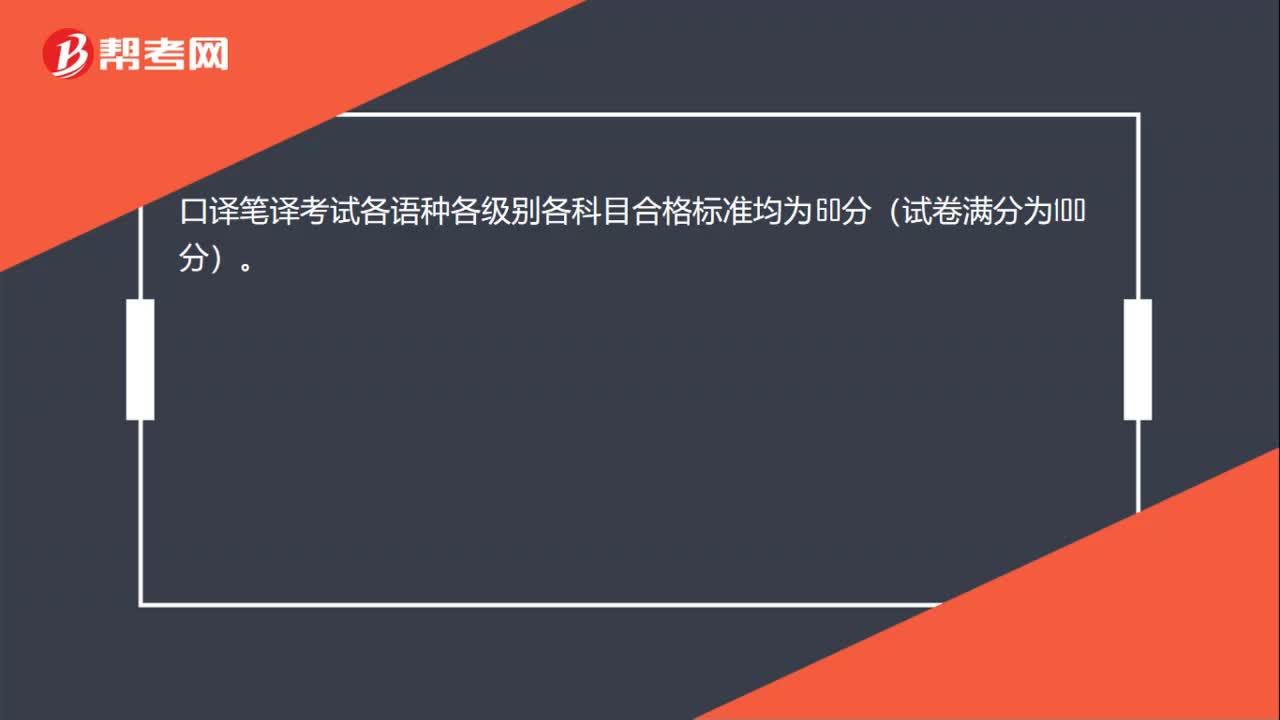 16
16口译笔译考试是多少分及格?:口译笔译考试各语种各级别各科目合格标准均为60分(试卷满分为100分)。
 00:23
00:232020-06-03
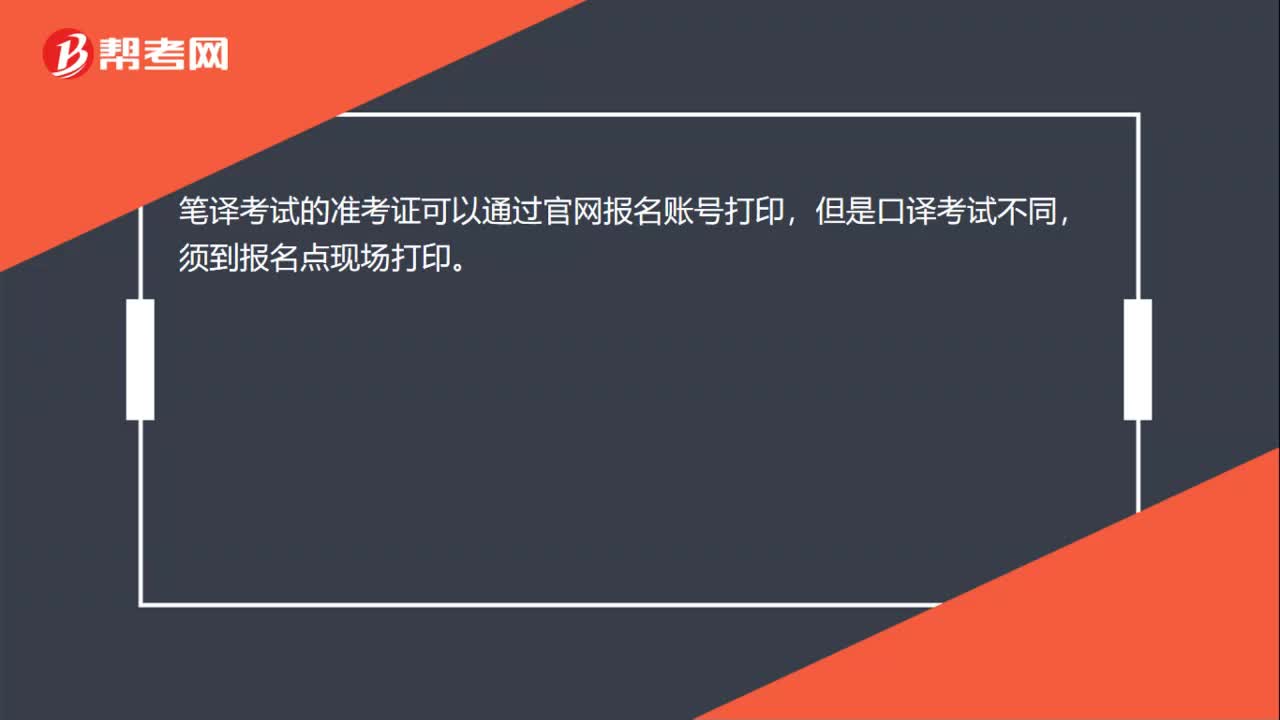 00:15
00:152020-06-03
 00:27
00:272020-06-03
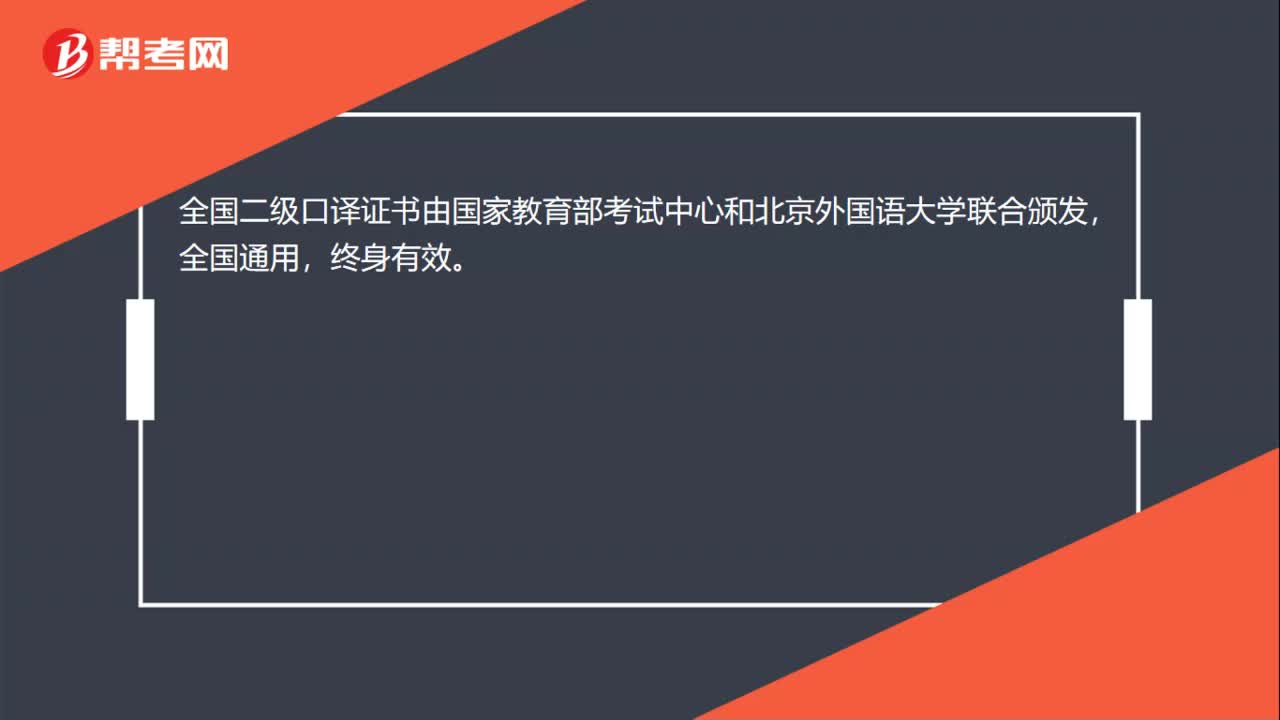 00:17
00:172020-06-03
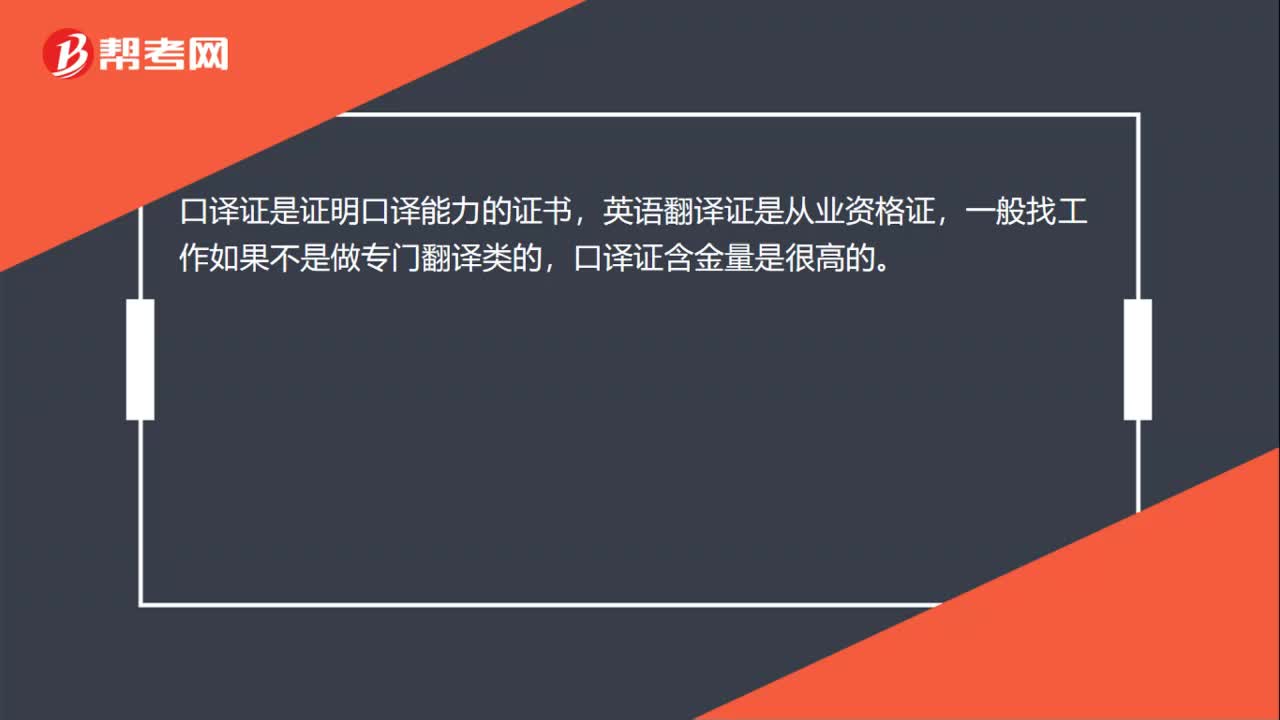 00:17
00:172020-06-03

微信扫码关注公众号
获取更多考试热门资料